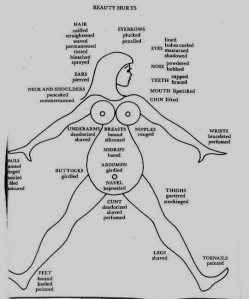What is an institution? How do institutions pass down social, political, and economic capital?
Why do we need language to describe institutions?
“David Lewis’ definition is helpful: a convention arises when all parties have a common interest in there being a rule to insure coordination, one has a conflicting interest, and none will deviate lest the desired coordination is lost (Lewis, 1968). Thus, by definition, a convention is to that extent self-policing. […] For a convention to turn into a legitimate social institution it needs a parallel cognitive convention to sustain it” (How Institutions Think, Mary Douglas, 46).

Douglas is describing an institution.
Here are a few other definitions of an institution:
- institutions - the patterns of living and social organizations that carry out the values and goals of a society. (oregon state)
- Any pattern of behaviour which by repetition, traditional sanction and legal reinforcement acquires a degree of coercion could be described as a social institution. [...]the structural components of a society through which the main concerns and activities are organized, and social needs (Anthropology for beginners)
- Institutions are ideas about how something should be done, look or be constituted in order to be viewed as legitimate. Institutions can be defined as a “stable collection of social practices consisting of easily recognized roles coupled with underlying norms and a set of rules or conventions defining appropriate behavior for, and governing relations among, occupants of these roles”. Institutions provide structure, guidelines for behavior and shape human interaction. (Weebly Anthropology)
The common interests are the passing of capital to the same group of people, whether between themselves or along to their future kin.
Strongly established or legitimized institutions further relate themselves to the supposed natural order of the universe: as we organize our minds and societies from birth, so the universe is naturalized organized. Institutions perpetuate themselves by preserving and sharing information to their justifying principle; this creates a mutual feedback between the institution and the model of the universe. The individuals that populate these institutions then self regulate their thoughts and perceptions according the justified social organization.
“Institutions systematically direct individual memory and channel our perception into forms compatible with the relations they authorize”(How Institutions Think, Mary Douglas, 92).
More clearly:
As institutions of socialization have organized our minds, so we have been taught that the universe is organized. Our institutions of learning, science, and classification reinforce and legitimized the established belief in the organization of the universe, reproducing it in the technology and ideologies we use to produce culture. Interaction of class based hierarchical structures perpetuate themselves to support underlying interests.
Why is it that way in our society?
Because people are that way.
Why are people that way?
Because people have to be that way. Because all people are that way. Because people have never been different.
"The institutions lock into the structure of an analogy from the body. The more primitive the division of labor, the more the same analogy can be deployed from one social context to another. In modern industrial society the analogical relation of head to hand was frequently used to justify the class structure"(How Institutions Think, Mary Douglas, 49).
 How do you know all people have always been that way?
Because of their body. As their body is, so is our society.
How do you know all people have always been that way?
Because of their body. As their body is, so is our society.
The secret held back is that our body is malleable. Our upbringing in society shapes our relationship with our body and the bodies of others.
Douglas describes varies ways that institutions have been credited with storing and reproducing information. Of course, empowering institutions to control information also empowers them with the ability to choose or erase particular topics of discourse. Our minds can be organized; certain ideas we simply never encounter because the institutions we trust to store information and educate us have excluded that information.
Types of institutions:
A very useful way of grouping social institutions is as follows:
(a) kinship institutions deal with marriage, the family and primary socialisation;
(b) political institutions regulate access to and the use of power;
(c) cultural institutions deal with religious, artistic and scientific activities;
(d) stratification institutions deal with the distribution of social positions and resources; and
(e) economic institutions produce and distribute goods and services.
The development of hierarchy and efficient division of labor allow institutions to more efficiently act on their power. This capacity reinforces and naturalizes the hierarchies implicit in the organization of the bureaucracy. Other minority ideas and subversive discourses cannot compete with the efficient labor nor the stored capital that institution.
 Douglas is describing an institution. Here are a few other definitions of an institution:
Douglas is describing an institution. Here are a few other definitions of an institution:
 How do you know all people have always been that way?
Because of their body. As their body is, so is our society.
The secret held back is that our body is malleable. Our upbringing in society shapes our relationship with our body and the bodies of others.
Douglas describes varies ways that institutions have been credited with storing and reproducing information. Of course, empowering institutions to control information also empowers them with the ability to choose or erase particular topics of discourse. Our minds can be organized; certain ideas we simply never encounter because the institutions we trust to store information and educate us have excluded that information.
How do you know all people have always been that way?
Because of their body. As their body is, so is our society.
The secret held back is that our body is malleable. Our upbringing in society shapes our relationship with our body and the bodies of others.
Douglas describes varies ways that institutions have been credited with storing and reproducing information. Of course, empowering institutions to control information also empowers them with the ability to choose or erase particular topics of discourse. Our minds can be organized; certain ideas we simply never encounter because the institutions we trust to store information and educate us have excluded that information.
No comments :
Post a Comment